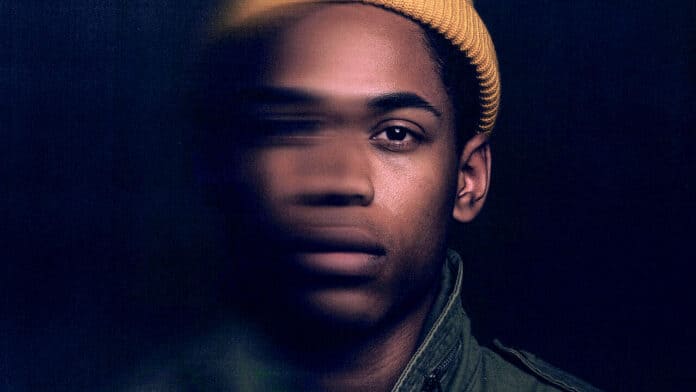Netflix’s ‘Monster’ brings to the forefront, a heartfelt and intense tale of a film student, Steve Harmon, who is one day charged with felony murder. His existence soon transforms from that of a budding filmmaker into that of a convict, being tried for a crime that may ruin his ambitions and land him behind bars for the rest of his life.
Hailing from Harlem, New York, Steve Harmon is an honour student at Stuyvesant High School. An aspiring filmmaker, he is often seen exploring his neighbourhood and city, eyeing everything from an artistic perspective, and capturing moments via his phone’s camera.
The plot switches between the trial and his life before the arrest to give a better understanding of the events that led to this moment. Touching upon his pleasant relationship with his family, great dynamic with his school’s film club teacher, Leroy Sawicki, and a romantic relationship with a fellow student, Steve is like any other kid his age.
As Steve discovers the need to tell his own story after a lecture from Mr. Sawicki, he starts perpetually exploring the world around him, searching for it. In his artistic escapades, he meets and gets to know a local Harlem convict, William King, who helps him view their neighbourhood in a new light, improving Steve’s storytelling skills.
However, despite their relationship, Steve knows to be cautious around William for the latter sees him as worthy of being refined into someone like himself. After an incident at a local store, where the owner is killed, Steve is arrested along with William, and two other accomplices for felony murder.
Post the arrest, Steve stands trial with public defender Katherine O’Brien set to represent him. She does not wholly believe that he is innocent but guides him through a process where he works on hiding his fears and presents a just version of himself in front of a jury that will decide his fate.
Does Steve Harmon turn out to be innocent?
Here is the ‘Monster’ ending explained in detail:
The unfortunate incident
On the day in question, Steve is stopped by William on his way back from school who asks him to go inside the store and check if there is anyone else in there except the owner.
Too afraid to refuse, he obliges and realises that the store is about to be robbed. His fright overtakes his sense of responsibility and he isn’t able to warn the owner about the events to follow.
He then steps out of the shop and raises his hand to his eye and faces the sun — a filmmaking habit which he follows to check the area for light exposure.
A witness who sees Steve do this informs the police of it who claim that this was part of Steve signalling William to go forth with their plan. Steve refutes this argument and explains his habit in court.
Guilty by law or conscience
It is open to interpretation whether Steve signalled the criminals or followed his habit, but he knows that even if he is cleared of all charges, he bears the guilt of not preventing the incident by informing the store owner.
Furthermore, he is supposed to be innocent until proven guilty, but the biases in the American justice system against African Americans do not make his job easy. A section of people are already convinced of his guilt, and the prosecutor even proceeds to call both Steve and William, ‘monsters’.
Therefore, it does not make his life much easier to realise that a version of him being guilty exists in a lot of people’s minds, including his own.
The Testimony
As the time for his final testimony in front of the jury nears, Steve gets a lesson in wisdom by his cellmate, Raymond “Sunset” Green as well as from O’Brien who inform him about what he needs to prioritise in his statement.
Remembering a lesson by Mr. Sawicki about the multifaceted nature of the truth, he decides to suppress his guilt and presents his version of the facts. He claims to have been an innocent by stander who was at the wrong place at the wrong time and had no idea that William and his accomplices were about to rob the store.
He successfully supresses his inhibitions and presents himself as a confident and bright young man in front of the jury, and since William has already made his statement, he has no option but to accept Steve’s testimony — which fits perfectly with his own recollection of the events, and there is no way he can refute it.
Owing to these developments, Steve is cleared of all charges and walks free.
Also Read: Jupiter’s Legacy ending explained: Conspiracy against the Union

